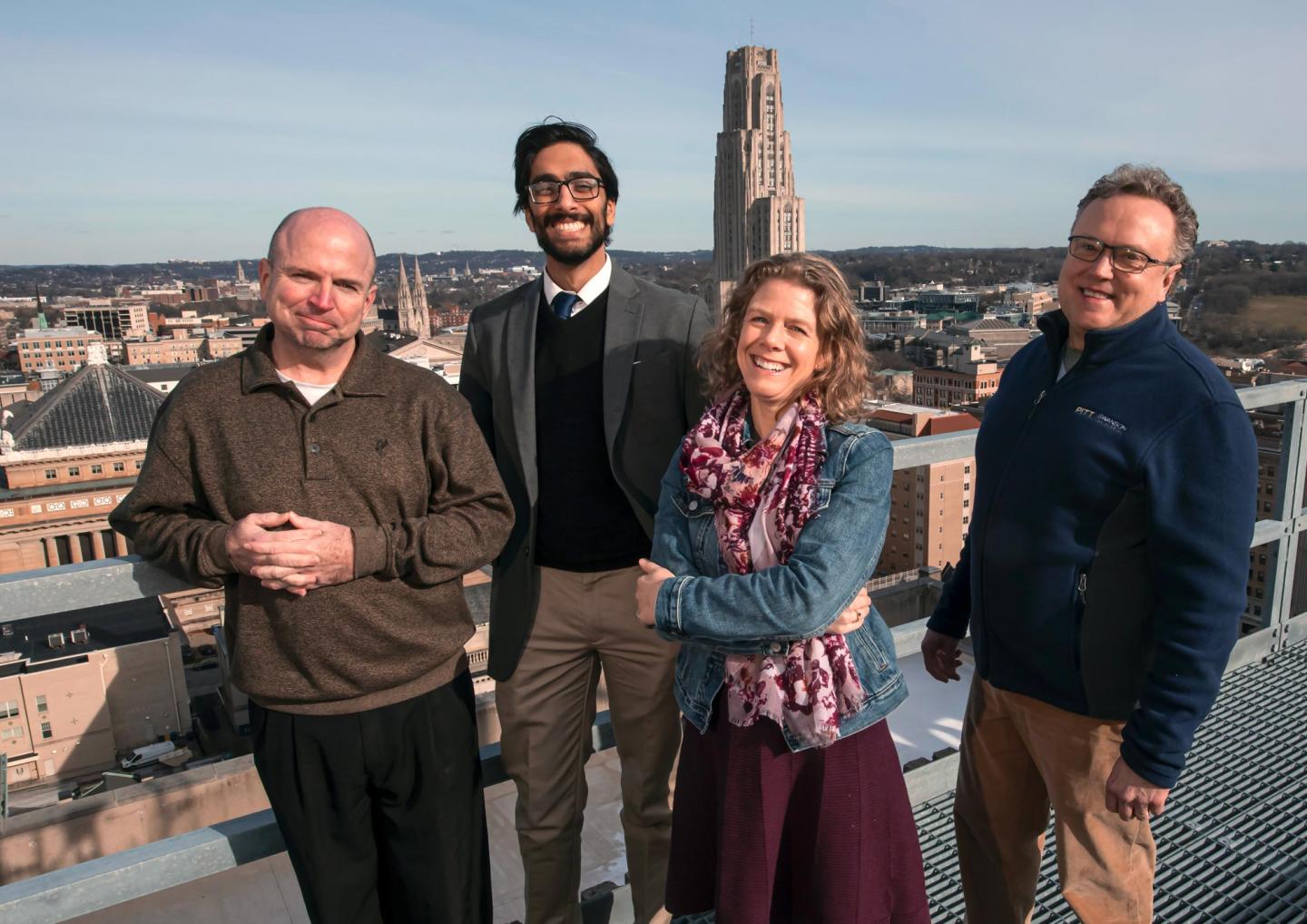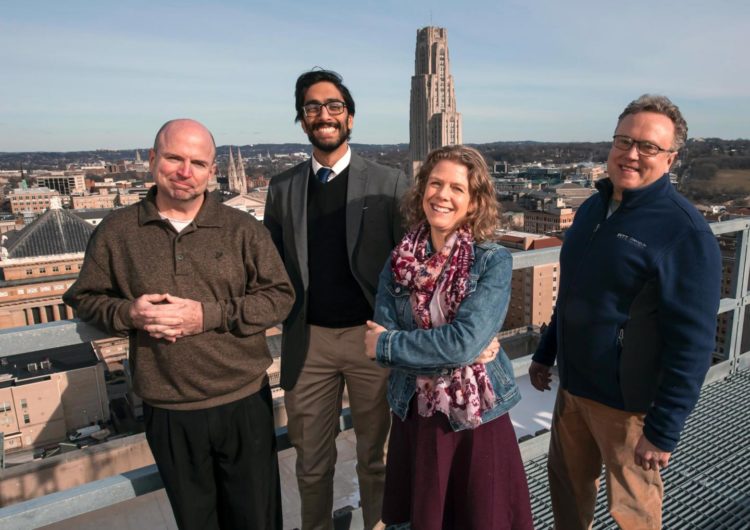Two teams of Pitt students get ready to send experiments to international space station

Credit: Aimee Obidzinski/University of Pittsburgh
PITTSBURGH (Jan. 30, 2020) — Most researchers can take certain things, like gravity, for granted. That is not the case for the two groups of students from the University of Pittsburgh who will be sending their experiments to fly aboard the International Space Station (ISS).
Thanks to a Pitt SEED Grant, two groups of students from the Swanson School of Engineering and the School of Pharmacy have the opportunity to send experiments into space to study the effects of microgravity on their subjects through Pitt’s participation in the Student Spaceflight Experiments Program (SSEP).
“This is an incredible opportunity for our students to participate in one of humankind’s most impressive ventures: spaceflight,” says David Vorp, PhD, associate dean for research, John A. Swanson Professor of Bioengineering at the Swanson School of Engineering, and co-principle investigator of the SSEP at Pitt. “We’re impressed that our interdisciplinary student teams designed not one, but two experiments accepted to this highly selective program.”
Vorp is joined as co-principle investigator by Ravi Patel, PharmD, and Kerry Empey, PharmD, PhD, from the School of Pharmacy. John Donehoo, RPh, clinical pharmacist at UPMC, joins the project as a select collaborator.
The SSEP student teams are given a 10-inch silicone tube in which to perform their experiments, which they can segment with clamps to keep elements of the experiment separate until they reach the ISS. Scientists aboard the ISS can only be given simple instructions, like removing the clamps and shaking the tube, making experiment design complicated.
Finding a Silver Lining
One interdisciplinary group of students is studying how silver nanoparticles effect the immune response of Daphnia Magna, a species of water flea that can show an immune response. Researchers Samantha Bailey, PharmD candidate; Jordan Butko, sophomore studying mechanical engineering; Amanda Carbone, junior studying chemical engineering; and Prerna Dodeja, MS student in the School of Pharmacy, will look at genetic markers in the organism that indicate its immune response once it returns to earth.
“Researchers have previously tested immune response in Daphnia Magna, but no one has looked at it with regard to nanoparticles yet,” says Carbone. “We’re excited that we get to build on the work that others have done and explore new territory.”
Silver nanoparticles are also sometimes found in antibacterial products and have been associated with significant toxicity in the liver and brain. While these nanoparticles aren’t so problematic on Earth, where gravity keeps them down, they could be more harmful in microgravity, where they can be accidentally inhaled or ingested. The study will investigate the effect of these silver nanoparticles on Daphnia Magna’s immune system in microgravity, comparing it to Daphnia Magna’s response on Earth, to shed light on if and how astronauts’ immune systems function differently in space.
Aerospace Aluminum
Marissa Defallo, a junior studying mechanical engineering, and Nikolas Vostal, a junior studying materials science, make up the second group of student researchers. They will send a sample of 3D-printed aluminum with unique topography, combined with an oxidizer like a saltwater solution, to the ISS to study corrosion in microgravity. Aluminum is frequently used in the aerospace industry, including on the ISS, and the experiment will provide insights into how the material corrodes in space, information that could inform future corrosion-resistant materials.
“At my co-op with American Airlines, we had to do corrosion training, and that evolved into the idea for this project. When satellites are in orbit, they are still in Earth’s atmosphere, and there’s oxygen present to cause corrosion,” says Defallo. “I’ve always had a passion for space and want to work for a company like SpaceX someday, so this kind of experience is an invaluable opportunity to have.”
Though the launch date is not yet officially scheduled, the SSEP teams say they may be able to send the experiments into space in June 2020.
###
Media Contact
Maggie Pavlick
[email protected]
412-383-0449
Original Source
https:/





